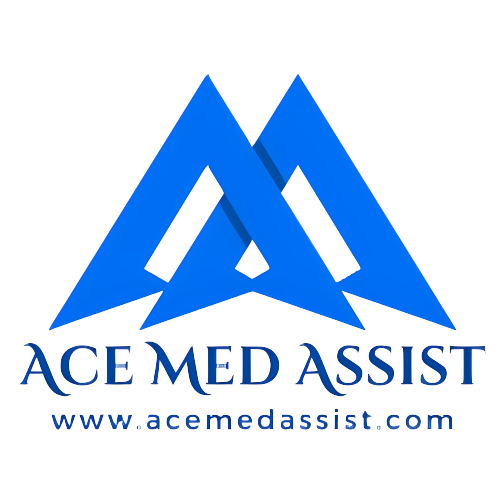Medical billing has undergone a remarkable transformation over the decades. From tedious manual processes to sophisticated AI-driven systems, the evolution of medical billing has revolutionized how healthcare providers and medical billing companies manage claims, reimbursements, and patient care. This blog explores the journey of medical billing services and how advancements in technology have paved the way for efficiency, accuracy, and enhanced patient experiences.
The Beginnings of Medical Billing: A Manual Process

Paper-Based Claims and Early Challenges
In the early days of healthcare, medical billing was entirely manual. Healthcare providers had to record patient information and services on paper forms, which were then mailed to insurance companies for reimbursement. These paper claims were prone to errors in data entry, delays in processing, and rejections due to missing or incorrect information. The lack of standardization in medical billing and coding further compounded the challenges. Medical professionals spent a significant portion of their time on administrative tasks, detracting from patient care.
The Advent of Medical Coding: A Step Toward Standardization

Introduction of ICD and CPT Codes
The introduction of standardized coding systems like the International Classification of Diseases (ICD) and Current Procedural Terminology (CPT) in the mid-20th century was a game-changer for medical billing services. These codes provided a unified language for documenting diagnoses and procedures, improved accuracy in claims processing, and enhanced communication between providers and insurers. Medical billing companies began to emerge, offering specialized services to help healthcare providers navigate these coding systems. This marked the beginning of outsourcing medical billing services in USA to improve efficiency and reduce administrative burdens.
The Digital Revolution: Electronic Billing Takes Center Stage

Transition from Paper to Electronic Health Records (EHR)
The healthcare industry’s shift from paper records to electronic health records (EHR) in the 1990s revolutionized medical billing. EHR systems enabled providers to store patient data digitally, streamline claim submission processes, and reduce errors caused by illegible handwriting or misplaced forms.
HIPAA Compliance and Security Measures
The Health Insurance Portability and Accountability Act (HIPAA), introduced in 1996, set standards for data privacy and security. This legislation ensured that digital medical billing systems adhered to strict guidelines to protect sensitive patient information.
The Role of Medical Billing Companies in the Digital Era

Outsourcing for Efficiency
As the complexity of medical coding and billing increased, more healthcare providers began to rely on medical billing companies USA. These companies offered expertise in navigating regulatory changes, ensuring compliance with coding updates, and maximizing reimbursements. Medical billing services in the US saw significant growth, with providers outsourcing these tasks to reduce overhead costs and focus on patient care.
The Rise of Automation: A New Age of Medical Billing
Early Automation Tools
The 2000s saw the introduction of automation tools that further streamlined medical billing processes. Software solutions were developed to automatically verify patient insurance eligibility, identify coding errors before claim submission, and generate reports for better financial oversight. These advancements significantly reduced claim denials and improved cash flow for healthcare providers.
AI-Powered Solutions: The Future of Medical Billing

Transforming Accuracy and Efficiency
Artificial Intelligence (AI) is the latest frontier in the evolution of medical billing. AI-powered solutions leverage machine learning algorithms to analyze vast amounts of data for predictive insights, automate repetitive tasks like data entry and claim submission, and enhance accuracy in medical coding. For example, AI tools can identify patterns in rejected claims and suggest corrective actions, reducing errors and improving reimbursement rates.
Benefits of AI in Medical Billing Services
- Faster Claim Processing: AI systems can process claims in real-time, reducing turnaround times.
- Improved Compliance: Automated systems stay updated with the latest regulations, ensuring adherence to coding standards.
- Cost Savings: By reducing the need for manual intervention, AI lowers operational costs for medical billing companies and providers.
- Enhanced Patient Experience: Streamlined billing processes lead to quicker resolutions, improving patient satisfaction.
Medical Coding and AI: A Perfect Partnership

Simplifying Complex Coding Systems
Medical coding is a critical component of billing that requires precision. With the introduction of ICD-10 and other updates, the complexity of coding has increased significantly. AI-powered medical coding tools help identify the correct codes for diagnoses and procedures, reduce the likelihood of coding errors, and speed up the coding process. This partnership between medical coding and AI has made medical billing services in the US more efficient than ever before.
Challenges in Adopting AI-Powered Medical Billing
Cost and Implementation Barriers
While AI offers immense benefits, the initial cost of implementation and training can be prohibitive for smaller practices. Healthcare providers may face challenges such as high upfront investment in AI tools, integrating new systems with existing workflows, and ensuring staff are adequately trained.
Data Privacy Concerns
As AI systems handle sensitive patient data, ensuring compliance with HIPAA and other privacy regulations remains a top priority.
The Role of Medical Billing Services in an AI-Driven Era
Expertise in Technology Adoption
Medical billing companies are at the forefront of adopting AI-powered solutions. Their expertise helps healthcare providers transition seamlessly to new technologies, ensuring compliance with industry standards, improved financial performance, and minimal disruption to patient care.
Continued Need for Human Oversight
Despite advancements in AI, human oversight remains essential. Medical billing professionals provide the critical thinking and problem-solving skills needed to address complex cases and resolve disputes.
Final Thoughts
The evolution of medical billing from paper claims to AI-powered solutions has transformed healthcare administration. Medical billing services in the US have embraced these changes, leveraging technology to enhance accuracy, efficiency, and patient satisfaction. As AI continues to advance, the future of medical billing holds even greater promise. By combining the power of automation with the expertise of medical billing companies, healthcare providers can navigate the complexities of billing and coding with ease. This partnership not only ensures compliance but also maximizes revenue and allows providers to focus on what matters most—delivering quality patient care. In a rapidly evolving industry, staying ahead requires adopting innovative solutions. Whether you’re a small practice or a large healthcare organization, partnering with experienced medical billing services can make all the difference in achieving success.









